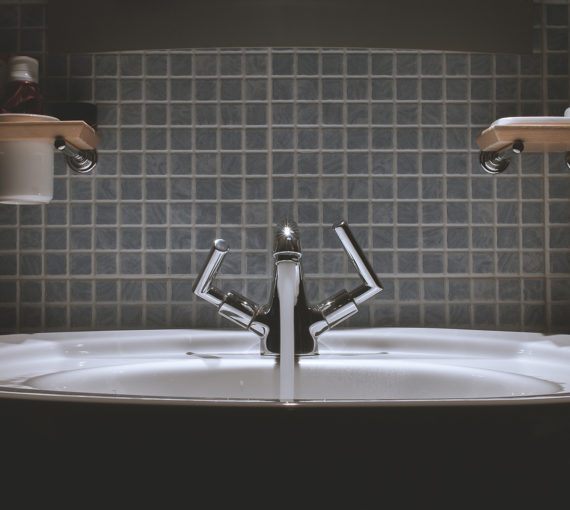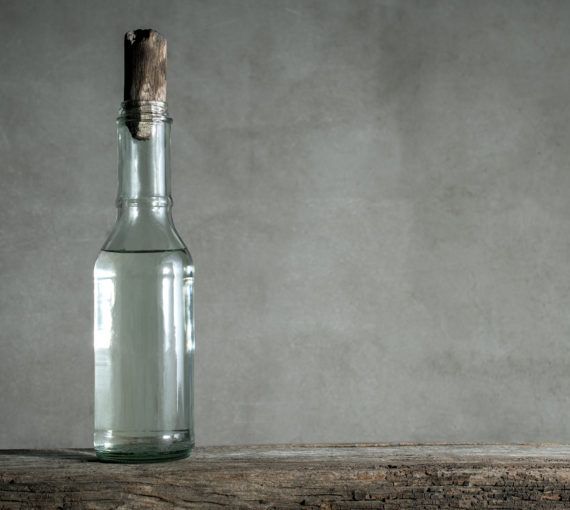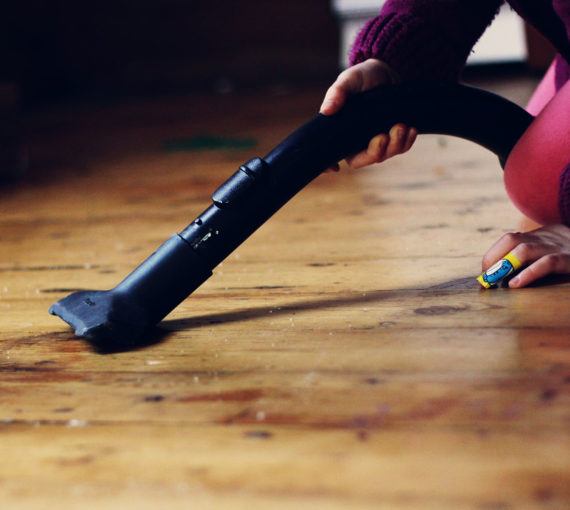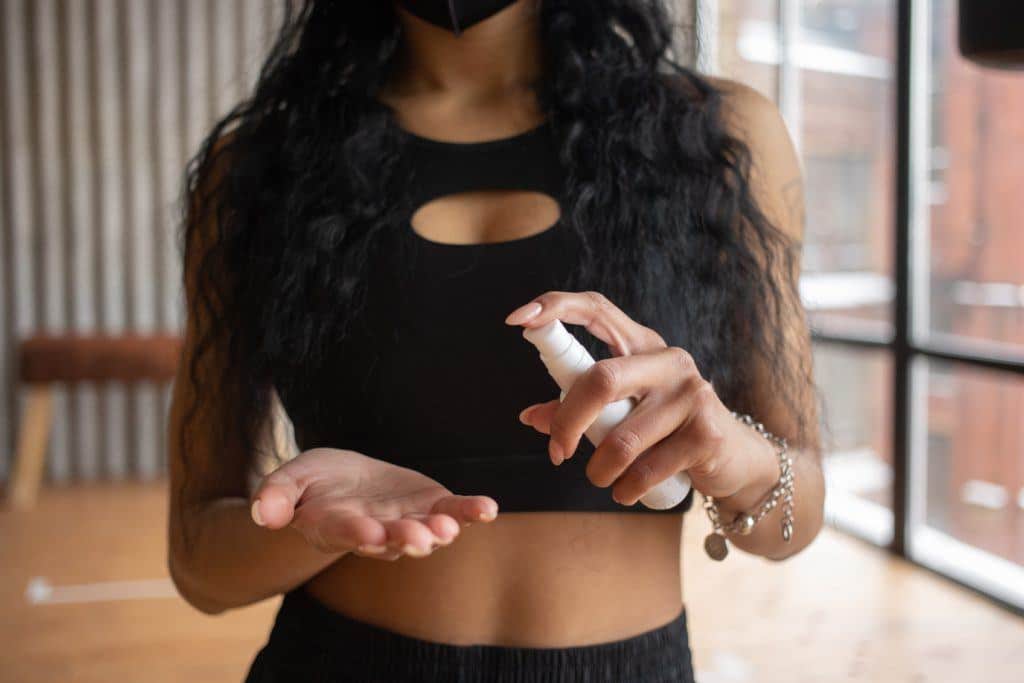
Create your own hand sanitizer and wash with diluted castile soap. It's a great way combat germs, know exactly what’s in your products and save money. (Photo: Monstera via Pexels)
Our obsession with eliminating germs could make us sicker!
“Antibacterial” and “antimicrobial” products don’t do a better job at fighting germs than regular soap. In fact, as bacteria, viruses, fungi and parasites become more resistant to them, antimicrobials become less effective and infections become more difficult to treat, increasing the risk of spread and the creation of “superbugs.”
Here are some helpful tips and DIY body care recipes to protect yourself and fight germs in a healthy way.
Shop smart:
- Avoid products labelled “antibacterial.”
- Avoid triclosan.
- Avoid “perfume” or “parfum” (also called “fragrance”). These can trigger allergies and asthma attacks in those with scent sensitives. Some are harmful to fish, wildlife and plants.
- Choose products that list ingredients (especially household cleaning products).
- Choose products with environmental certification labels like EcoLogo or Green Seal.
If you live or work with children, non-toxic disinfectants are even more important. Children absorb chemicals much more than adults. They’re close to the ground, have “exploratory instincts” and put everything in their mouths!

Avoiding toxic chemicals
Accumulation of toxic chemicals inhaled, ingested and absorbed through skin every day is called “body burden.” Follow these simple tips to unburden yourself, your family, your home and your workplace.
Essential oils
These DIY body care recipes use essential oils. Essential oils are great for aromatherapy, body care and cleaning. But they use a lot of plant material. Their rise in popularity over the last decade has hidden environmental costs.
When using essential oils:
- Purchase from a local distiller (or learn how to do it yourself).
- Buy organic.
- Use with deep care and reverence.
- Follow instructions carefully — they’re potent.
Use essential oils with caution if you’re pregnant, have health issues or pets (some essential oils are toxic to pets e.g., peppermint, tea tree, etc.). Be sure they can be applied to skin — some citrus oils may cause reactions when exposed to sunlight. Always try a test patch and omit if sensitive to scents.
DIY recipes that kill germs
Always be mindful of allergies and skin sensitivities when making body care products. First conduct a patch test.
Hand sanitizer
Time to make: under five minutes
Shelf life: shouldn’t expire
- 60 ml (4 Tbsp) pure aloe gel
- 125 ml (½ cup) grain alcohol (e.g., vodka) or rubbing alcohol
- 5-8 drops tea tree or thyme essential oil
Mix and store in a squeeze bottle. Optional: add 30 ml of vegetable glycerin to combat the alcohol’s drying effect.
Note: Although alcohol-based hand sanitizers work in a pinch, washing hands with soap and water is even more effective. For COVID-19, health authorities recommend using hand sanitizer with at least 60 per cent alcohol — but even that won’t work well on visibly dirty hands. Boost this recipe by reducing aloe to 30 millilitres and choosing rubbing alcohol.
Hand spray
Time to make: under five minutes
Shelf life: about six months
- 250 ml (1 cup) pre-boiled water (to kill bacteria) or distilled water
- 60 ml (¼ cup) witch hazel
- 10 drops of tea tree essential oil
- 10 drops of eucalyptus essential oil
Witch hazel has significant antibacterial and antimicrobial properties. It can be bought in bulk at most health food stores. Mix and store in a spray bottle. Use as a refreshing germ-fighting spray for hands and surfaces!
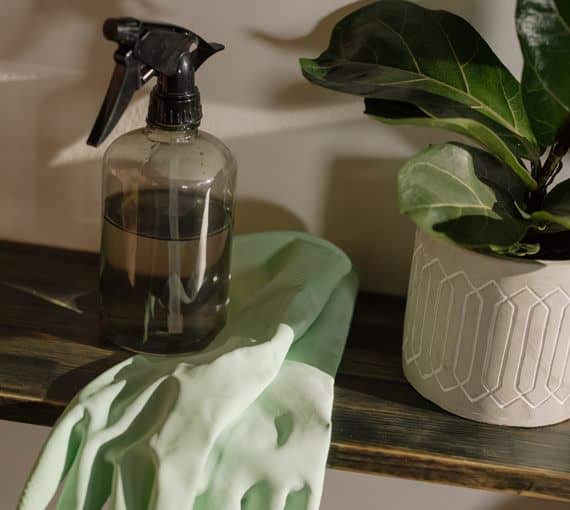
Non-toxic disinfecting
Go beyond disinfecting your body. Learn more about how to safely disinfect your home or work space, shop for non-toxic disinfectant products and why it’s important.
Liquid hand or body soap
Time to make: under five minutes
Shelf life: about six months
In a soap dispenser or bottle, add:
- 30 ml (2 Tbsp) liquid castile soap
- 355 ml (1 ½ cups) pre-boiled water or distilled water
- 5 ml (1 tsp) vegetable oil (sunflower, sweet almond, olive, etc.)
- 10 drops of essential oils of your choice (optional)
This recipe is easily adaptable, e.g., add a bag of your favourite herbal tea to the boiling water for a special, comforting touch!
Reusable wipes
Time to make: under 10 minutes
Shelf life: use within 2-3 weeks
Stack clean cloth wipes in an airtight container. Pour this pre-mixed solution on top:
- 250 ml (1 cup) pre-boiled water or distilled water
- 60 ml (¼ cup) witch hazel
- 15 ml (1 Tbsp) apple cider vinegar
- 15 ml (1 Tbsp) organic coconut oil
- 5-10 drops of tea tree essential oil
- 5-10 drops of lemon, eucalyptus or lavender essential oil
Launder cloth wipes after use with Earth-friendly laundry soap.
Note: These wipes are made with gentle, skin-friendly ingredients, but witch hazel can be drying to the skin so consider applying a DIY moisturizer after using the wipes. Do not use on open skin wounds.
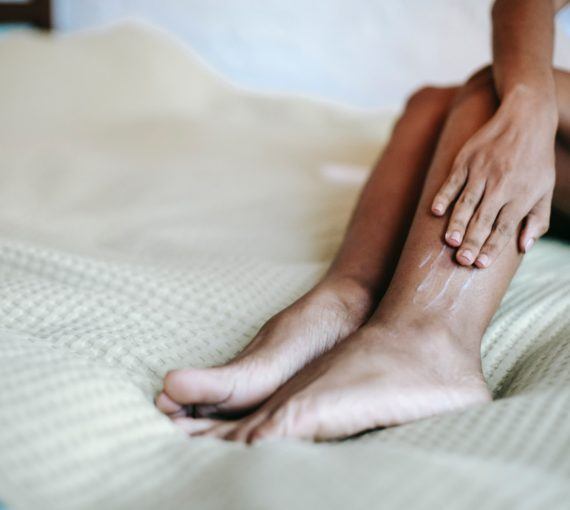
Seven non-toxic DIY body care recipes
The cosmetics industry generates billions of units of plastic packaging per year. Their products are often filled with harmful chemicals and heavy metals. Learn how to make aftershave, body spray, body lotion, hair rinse, mouthwash and foot soak using non-toxic DIY body care recipes that are gentle for you and nature.
Antibacterial mouthwash
Time to make: under five minutes
Shelf life: use within 1-2 weeks
- 250 ml (1 cup) pre-boiled water or distilled water
- 15 ml (1 Tbsp) baking soda
- 5 drops tea tree essential oil
- 10 drops peppermint essential oil (optional)
Baking soda has been used for oral hygiene throughout history due to its mild abrasive properties and ability to neutralize acids. It has also been found to have antibacterial and mildly antiseptic properties. Mix and store in an airtight jar. Shake well before each use.
Note: Baking soda can lead to damaged tooth enamel due to its abrasive quality, so use with caution and consult with your dentist if unsure.
Antibacterial foot soak
Time to make: under five minutes
In a large bin or container, add:
- 125 ml (½ cup) Epsom (magnesium sulfate) salts
- 60 ml (¼ cup) baking soda
- 10 drops tea tree essential oil
- Enough warm water to cover feet comfortably
The sulfur in Epsom salts has been found to have antibacterial and antimicrobial properties. Dissolve the ingredients in warm water and soak your feet.

